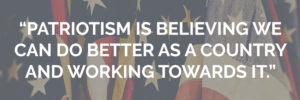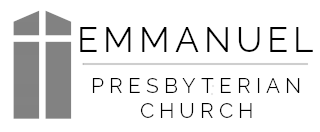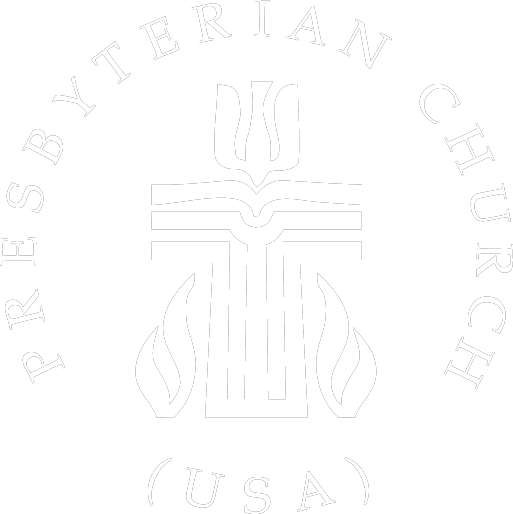It’s July 3rd as I write. Patriotism is on my mind. It’s on my mind a lot.
What does it mean to be patriotic or a patriot?
Patriotism is not nationalism or nationalistic. It’s not about believing we are the best or have the best way to be a country. Much the way I think about my faith. I believe whole heartedly in the truth of the Gospel of Jesus, but I’m/we’re not there yet. We’re working on it. This is a journey. Patriotism is a journey.
I believe patriotism for country is more than an idea, it is more than a belief.
Like faith patriotism is more than an adherence to certain political ideas and ideals. It is greater than the sum of its parts. Like faith, patriotism looks different in each one of us, some are further down the road than others. Some of us have more developed practices or have done things in our lives that have demonstrated our patriotism more than words can capture.
When I first arrived at Emmanuel I was having a conversation with one of our members about patriotism. He said this,

I’ve taken his words to heart over these last three years. These words have become the measure for me of being patriotic. How?
Patriotism is more than an idea – it includes action.
For many in our congregation, it meant enlisting or responding to a military draft. Though I did not serve in the military my father, like many of yours did. My father was a Sea Bee, the engineering arm of the Navy. He served in the Pacific theater and eventually was stationed at the Pentagon to help devise the invasion of Japan, which after Hiroshima and Nagasaki was not needed.
My father-in-law carried shrapnel in his body his whole life from fighting in the Pacific during WWII. I have had adult friends who served in Korea and know some of the names on the Vietnam Memorial Wall in Washington D.C. For many this is the ultimate expression of patriotism. But it is not the only.
If one believes in the ideals of a country and also believes we’ve not arrived at the end, then patriotism is truly working toward the vision.
It means that simple things like paying taxes is a patriotic act. I pay my taxes and therefore participate in helping make this country work for me and others. Paying social security may not be the greatest of personal investments, but it supports the many who need it. Everything from roads to bridges to healthcare can all be patriotic acts.
When I vote, I am being patriotic, believing that my action will lead to us being better than we are. Protestors can be patriotic, if it is to encourage us to be our better selves as a country. When we believe, we are not being our best selves then we need to speak up and take action.
What I think a lot about is the interaction between patriotism and faith.
I believe the message of the New Testament says that God is the author of all authority, therefore authorities are intended to mirror the love and mercy and justice of God. (See Romans 13:1) Governing authorities are intended to implement the values of the Kingdom of God. They serve a higher purpose than the perpetuation of a nation, or economic system, or a philosophy of governance. When they don’t, they stop fulfilling their purpose.
As a Christian, it is my responsibility to ensure that I don’t demean the purposes or God or take them for granted or, as we learned in Malachi, shove God’s value to the side in favor of practicality or expediency.
True Christian patriotism, if there is such a thing, is to not only believe for but work for the goals of God’s Kingdom to be present in the society we are participating in.
The Minor Prophets have given us a lot of straight forward talk on this. On God’s mind is the execution of justice and righteousness and mercy and love, the very character embodied in Jesus. It is an indictment against us in Malachi if we were to dismiss this as impractical and simply ignored God’s grand design.
Christian patriots, again if there is such a thing, should be people who make sure their elected officials know God’s Kingdom values and work towards them.
When they don’t we must remind them and even figure out ways to impress on them the need to govern with the values of the Kingdom of God embodied in their policies. This is not partisan politics. It is partisan to God’s Kingdom. Patriotism is ultimately for the benefit of all, not just me. People don’t put their lives on the line for their own benefit, but for the benefit of others.
Jesus said,

Many would consider this the greatest act of patriotism. We know that it is the greatest act of love in God’s economy because Jesus laid down his life for us.
How does this relate to faith?
Well, faith is not a possession. It is not an idea. Faith is believing God and his commands and doing them. We act not for ourselves. We don’t act in faith to get what we want. Faith is always given for the sake of others.
In that sense, patriotism mirrors faith. Like true faith, patriots will give themselves away so others will have what they have. How much more, as those who are loved by God, have that we can share, give away so others will know God’s love and mercy and justice? Christians who are patriotic will elevate our culture and society to the values of God’s Kingdom, not lower our standards to meet the base values of our world.
C.S. Lewis in his sermon, “The Weight of Glory” writes:
Meanwhile the cross comes before the crown and tomorrow is a Monday morning. A cleft has opened in the pitiless walls of the world and we are invited to follow our great Captain inside. The following Him is, of course, the essential point. That being so, it may be asked what practical purpose there is in the speculations which I have been indulging. I can think of at least one such use. It may be possible for each to think too much of his own potential glory hereafter; it is hardly possible for him to think too often or too deeply about that of his neighbor. The load, or weight, or burden of my neighbor’s glory should be laid on my back, a load so heavy that only humility can carry it, and the backs of the proud will be broken. It is a serious thing to live in a society of possible gods and goddesses, to remember that even the dullest and most uninteresting person you can talk to may one day be a creature, which, if you saw it now, you would be strongly tempted to worship, or else a horror and a corruption such as you now meet, if at all, only in a nightmare. All day long we are, in some degree, helping each other to one or other of these destinations. It is in the light of these Nations, cultures, arts, civilizations – these are mortal, and their life is to ours as the life of a gnat. overwhelming possibilities, it is with the awe and circumspection proper to them, that we should conduct all our dealings with one another, all friendships, all loves, all play, all politics. There are no ordinary people. You have never talked to a mere mortal. But it is immortals whom we joke with, work with, marry snub, and exploit – immortal horrors or everlasting splendors.
Whether Church or country let us be about eternal things, the very things of God. Let us work, not for ourselves but for the purposes God gave us from the beginning, to be His people in all things and places. Meaning that we should be working for the things he cares about in all that we do.
Faithfully,
Craig




Thanks for this, I’ve been struggling this Fourth of July, conflicted over patriotism, nationalism, and where we stand as a country.